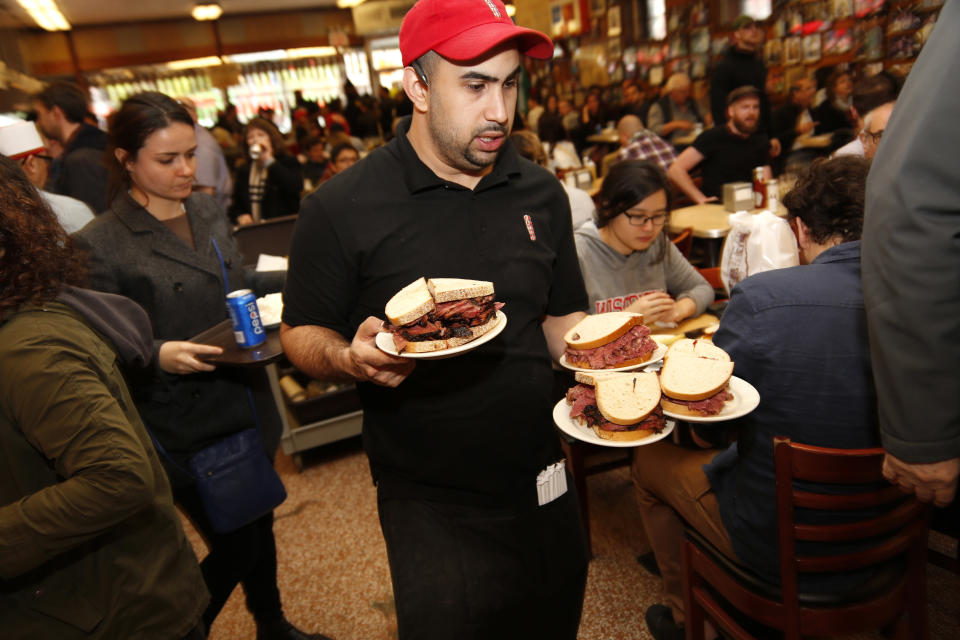Massive U.S. spending bill delivers win to Americans who rely on tips

The U.S. House of Representatives and Senate passed a $1.3 trillion spending bill on Thursday, which includes a provision that prevents employers from taking any of their workers’ tips.
This controversial rule actually garnered bipartisan disagreement. It all began in December, when the U.S. Department of Labor submitted a rule that would rescind a regulation enacted during the Obama administration that required employers to distribute tips to their tipped employees. Under the new rule, restaurants and other employers would be able to pool tips from servers and share them with untipped employees like dishwashers — and potentially pocket some of the wages.
In response to the proposed rule, 350,000 individuals submitted public comments. Individuals participated in rallies and protests at Labor Department buildings across 20 cities, according to Restaurant Opportunities Centers, a nonprofit that represents 25,000 workers.
In Title XII on page 2025 of the spending bill, the language directly addresses this concern of legal wage theft. It states: “An employer may not keep tips received by its employees for any purposes, including allowing managers or supervisors to keep any portion of employees’ tips, regardless of whether or not the employer takes a tip credit.”
The bill also stipulates that any employers who violate this rule will be liable to the employees in the amount of the tips that were taken, and “shall be subject to a civil penalty not to exceed $1,100 for each such violation… and an additional equal amount as liquidated damages.”
‘Tips belong to workers and no one else’
Christine Owens, executive director of the National Employment Law Project, said, “The law cannot be more clear. Tips belong to workers and no one else. This landmark victory belongs to all the restaurant servers, bartenders, car wash workers, valets, attendants, and all the other tipped workers in America who fought back when the Trump administration proposed its misguided tip-stealing rule. They wrote in, held protests, signed petitions, and spoke out. That’s what brought Labor Department officials and lawmakers to the table to hash out this historic agreement.”
Research shows that illegal wage theft exceeds $15 billion every year. “It seems obvious that when employers can legally pocket the tips earned by their employees, many will do so,” said Heidi Shierholz, senior economist and director of policy at the Economic Policy Institute (EPI).
If tipping wages were legal, the number of stolen tips would increase exponentially, she argued. The Labor Department itself found that the tip-pooling rule could allow employers to keep $640 million in tips every year. This figure pales in comparison to EPI estimates of $5.8 billion.
Melody Hahm is a senior writer at Yahoo Finance, covering entrepreneurship, technology and real estate. Follow her on Twitter @melodyhahm.
Read more:

 Yahoo Finance
Yahoo Finance 